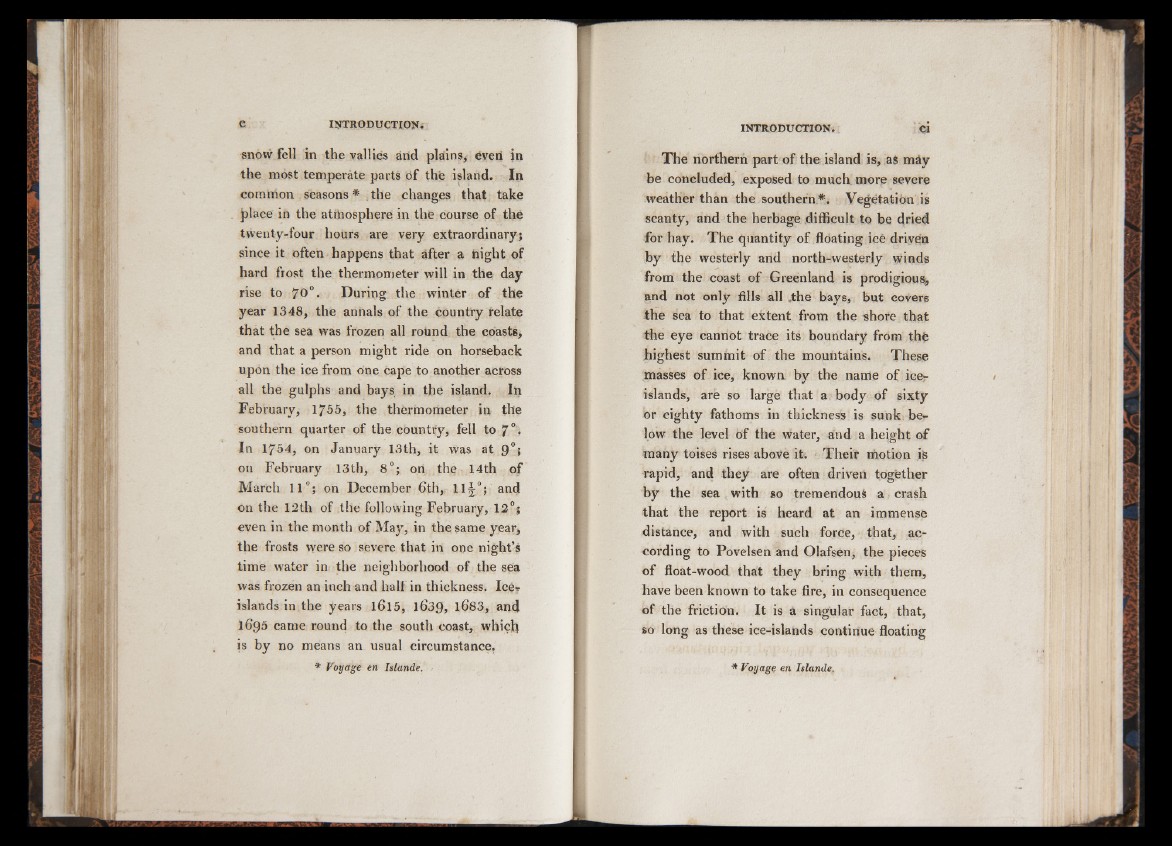
snow fell in the vallies and plains, éveil in
the most temperate parts bf the island. In
common seasons* the changes that take
place in the atiliosphere in the course of thé
twenty-four hours are very extraordinary;
since it often happens that after a hight of
hard frost the thermometer will in the day
rise to 70°. During the winter of the
year 1348, the anhals of the country relate
that the sea was frozen all rotind the coasts,
and that a person might ride on horseback
upon the ice from one cape to another across
all the gulphs and bays in the island. In
February, 1755, the thermometer in the
southern quarter of the country, fell to 7 °.
In 1754, on January 13th, it was at 9°;
011 February 13th, 8°; on the 14th of
March 1 1 °; on December 6th, 11^°; and
on the 12th of the following February, 12
even in the month of May, in the same year,
the frosts were so severe that in one night’s
time water in the neighborhood of the sea
was frozen an inch and half in thickness. Icé»
islands in the years 1Ô15, 1639, 1683, and
1695 came round to the south coast, whicfi
is by no means an usual circumstance,
The northern part of the island is, as may
be concluded, exposed to much more severe
weather than the southern*. Vegetafcibn is
scanty, and the herbage difficult to be drie$
for hay. The quantity of floating ice driven
by the westerly arid north-westerly winds
from the coast of Greenland is prodigious^,
and not only fills all .the bays, but covers
the sea to that extent from the -shore that
the eye cannot trace its boundary from thb
highest summit of the mountains. These
masses of ice, known by the name of icer
islands, are so large that a body of sixty
or eighty fathoms in thickness is sunk ber
low the level bf the water, and a height of
many toises rises above it; Their motion is
rapid, and they are often driven together
by the sea with so tremendous a crash
that the report is heard at an immense
distance, and with such force, that, according
to Povelsen and Olafsen, the pieces
of float-wood that they bring with them,
have been known to take fire, in consequence
of the friction. It is a singular fact, that,
so long as these ice-islands continue floating